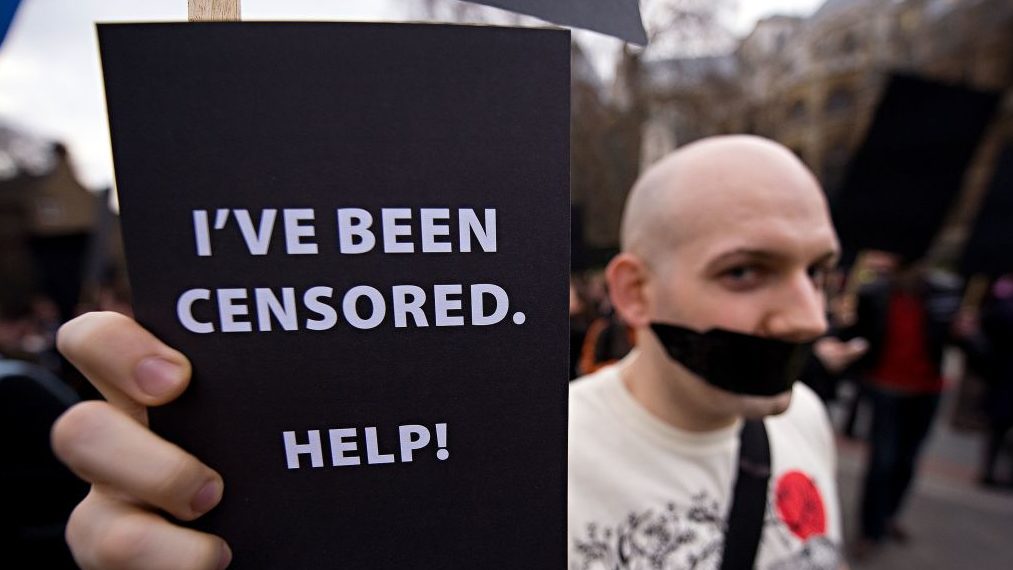In a recent article, UnHerd’s science editor Tom Chivers argues that culture war debates are futile because the people on each side are working with different definitions of key terms. He takes ‘cancel culture’ as an example, arguing that “there’s nothing solid there to argue about” since the term has “no stable or universally agreed definition”. For Chivers, debating the existence of cancel culture is “all mood affiliation and tribalism”.
I’m a fan of Chivers’ writing on science and culture, but in this case I have to respectfully disagree with him. He wants to take a middle path between — as he sees it — two equally zealous factions: those who claim cancel culture doesn’t exist, and those who argue it’s a very real problem. However, this isn’t a debate where the truth lies somewhere in the middle. Rather, those who deny that cancel culture exists are simply wrong.
To begin with, it is possible to define the term in a coherent way. I offered my own definition in a piece for Quillette last year. In short, it’s when activists pressure an institution to sanction someone because others perceived that they were psychologically or emotionally harmed by the individual’s speech (or historical actions). But if you don’t like my definition, that’s fine. A term can still be meaningful, and useful, even if we can’t agree on the precise definition. (Biologists can’t agree on the precise meaning of ‘species’; one 2006 article listed 26 separate definitions.)
As Chivers may be aware, there are various lists of people and things that have been cancelled, or targeted for cancellation, over the last few years. If you totted up all the people, you might get to several hundred. However, he isn’t convinced that these examples add up to a “cancel culture”. And maybe just as many people were getting cancelled back in the 1990s? Perhaps the base rate hasn’t changed.
There are several reasons why such scepticism is unwarranted. It’s obvious that most people, most of the time, aren’t at risk of getting cancelled. Out of all the opinions one can express, only a tiny number impinge on the sacred values that motivate cancel culture. And the majority of us don’t actually like political correctness. If a construction worker tells an offensive joke, his colleagues probably aren’t going to notify the boss. However, there are certain domains where cancellations do happen quite frequently: universities and social media being the two most obvious. In other words, just because cancelled individuals comprise a small share of the total population, doesn’t mean cancel culture is a myth (or is too vague to define).
Another reason why there aren’t that many examples we can point to is that cancel culture causes people to self-censor. As Steven Pinker (who has himself been the subject of a scurrilous open letter) notes:
Aside from counting the number of people who’ve lost their jobs over social media outrage, we can look at evidence from surveys.
In a poll carried out for the Cato Institute last year, 62% of Americans agreed with the statement, “The political climate these days prevents me from saying things I believe because others might find them offensive”. This was up from 58% in 2017. Unsurprisingly, conservatives were much more likely to agree than liberals. When asked, “Are you worried about losing your job or missing out on job opportunities if your political opinions became known?” 38% of Republicans said “yes”. And this rose to 60% among Republicans with a post-graduate degree. Alarming levels of self-censorship have also been documented in academia and the arts.
We don’t need rigorous data going back several decades to know that cancel culture represents something new. Besides, there actually is data showing that the problem has gotten worse over time. The Foundation for Individual Rights in Education maintains a database of over 400 disinvitation attempts at US universities (where activists demand that an invited speaker not be allowed to speak). Plotting the number of such incidents by year, there is a clear upward trend since the early 2000s.
Last July, following a particularly intense spate of cancellations, 153 mostly Left-leaning intellectuals wrote a letter to Harper’s Magazine. They noted that censoriousness is “spreading more widely in our culture”, and referred to “an intolerance of opposing views, a vogue for public shaming and ostracism, and the tendency to dissolve complex policy issues in a blinding moral certainty”. The fact that such a large number of public figures felt the need to say this testifies to cancel culture’s impact.
Chivers is right that debates are almost invariably more fruitful when they focus on real issues, not semantics. However, the disagreement over cancel culture isn’t just a matter of definitions. There has been an increase in censoriousness – in attempts to get people sanctioned for expressing views that others find objectionable. This extends well beyond people losing their jobs, and includes lectures being cancelled, statues being removed, and public figures being kicked off social media. The new censoriousness is something that both conservatives and liberals should oppose. But doing that will be harder if we don’t have a name for it.
Noah Carl is an independent researcher and writer. You can follow him on Twitter @NoahCarl90











Join the discussion
Join like minded readers that support our journalism by becoming a paid subscriber
To join the discussion in the comments, become a paid subscriber.
Join like minded readers that support our journalism, read unlimited articles and enjoy other subscriber-only benefits.
Subscribe